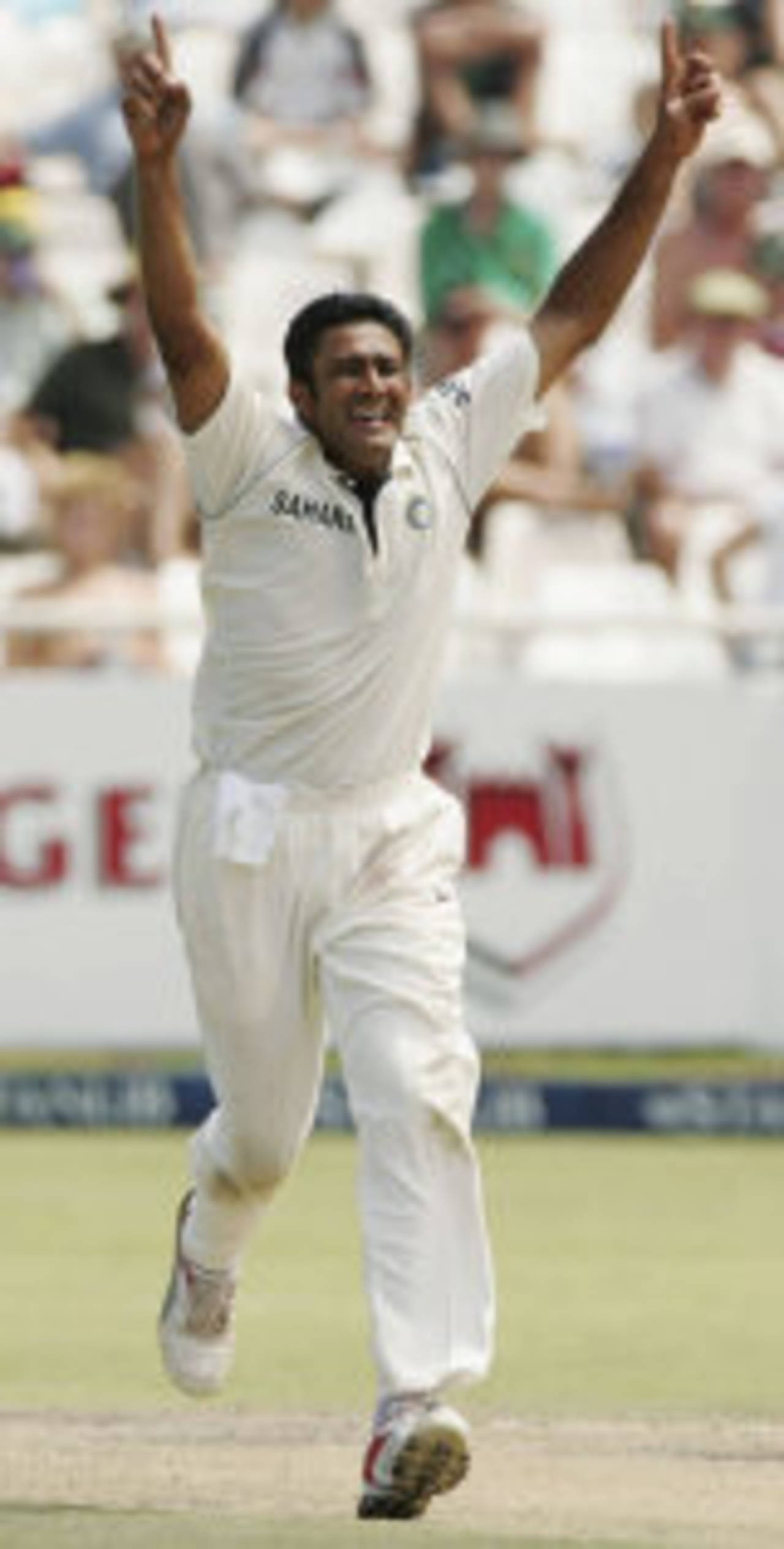In praise of Kumble
If winning Test matches is the yardstick we use to measure the value of a player, Kumble is the most valuable player India has had since Kapil Dev
Mukul Kesavan
25-Feb-2013

Alexander Joe/AFP
I'm glad Anil Kumble has retired from one-day cricket. For two reasons. The lesser reason is that India's ODI team management appreciated neither his gifts nor the implacable will he brought to his work and didn't deserve him. Dravid preferred Harbhajan bowling mechanical off-spin like a wind-up toy to Kumble's commitment and intelligence and craft—as did Ganguly before him. But the more important reason to celebrate Kumble's one-day retirement is that it will help extend his Test career.
And how important is that? Very important indeed. If winning Test matches is the yardstick we use to measure the value of a player, Kumble is the most valuable player India has had since Kapil Dev: more important than the fine crop of batsmen of the last twenty years (Azharuddin, Tendulkar, Dravid, Ganguly, Laxman) and orders of magnitude more important than endorsement giants like Pathan, Dhoni and Yuvraj. You can reasonably argue that most Kumble-inspired victories have come at home but only if you're willing to apply that stricture to his batting contemporaries. Since 1971, the year we beat the West Indies in their backyard, Indian cricket has been sustained by three great players: Sunil Gavaskar, Kapil Dev and Anil Kumble. That the rehearsal of this simple fact should seem startling or revisionist gives you some idea of how batsman-centric cricket is and how much we love worshipping little mountains of runs.
Luckily Javagal Srinath who, along with Kumble, pretty much made up India's bowling attack for years, has written a lovely tribute in the Hindustan Times which gives Kumble his due. Here's a quote from it, but do read the whole thing:
"What made him a great bowler was there was no parallel (in the way he bowls) in Indian cricket, perhaps Chandra being the closest. The rest are more traditional bowlers. But his uniqueness was as much an insecurity (to him) as a strength. What worried him early on was that people would think him predictable, say that he would be read very well by the opposition. Whenever he was compared to Warne and found wanting, it really worked him up. It was only around the late 90s that he came to terms with it, realised that his uniqueness was his strength, figured what he could work on and what he could not."
At least Bangalore appreciates him. Which other player can claim to have a roundabout in the middle of a great metropolis named after him at age thirty! Anil Kumble Circle (formerly Oriental Circle) sits at the junction of St. Mark's Road and MG Road in the heart of Bangalore and bears mute witness to the glory of a native son.
Mukul Kesavan is a writer based in New Delhi